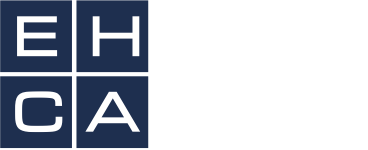EAST HAMPTON AIRPORT
NOISE ABATEMENT PROGRAM AND PILOT PLEDGE
Pilot Pledge
I pledge to participate in East Hampton Airport Voluntary Noise Abatement Program and follow applicable procedures, routes and fly neighborly practices to the best of my ability.
I understand that these procedures are not intended to preempt the responsibilities of the pilot-in-command for safe aircraft operation. Pilots must follow ATC instructions and ensure compliance with all applicable FAA regulations and weather limitations.
I further commit to follow the voluntary routes and altitudes detailed below, as long as weather and traffic conditions permit. These routes do not supersede the requirement to comply with 14 CFR Part 91.3, 91.13, 91.119(a), 91.126(b)(2), 91.129(f)(2), and SFAR 93.103.
East Hampton Airport Noise Abatement Program
All Operators
Observe a voluntary curfew of 9 pm – 7 am, with the exception of training currency requirements
Engine run-time on the ramp not to exceed 10 min and APU run-time not to exceed 30 minutes prior to departure and after arrival
Fixed wing aircraft use Runway 28 for arrivals and departures whenever possible or as directed by ATC
All agree to utilize highest possible altitudes as practical and to fly no lower than 1,000 feet for piston and turboprop aircraft and 1,500 ft for turbojet aircraft in the pattern until maneuvering for landing
When possible use electronic flight bags and moving map displays depicting noise sensitive areas to maintain situational awareness and avoid overflying them
All agree to continue to embrace quiet technology as it evolves and becomes available
Helicopter Operators
All helicopter operators and pilots operating at HTO will complete FAA/Helicopter Association International (HAI) noise abatement training course
Adhere to recommended industry Fly Neighborly techniques and procedures
Maintain altitudes of 3,500 and above except for arrivals and departures
Seaplane Operators
All seaplane operators agree to standardize sea plane arrival and departure routes corresponding to the least noise-sensitive areas
Maintain altitudes of 3,000 ft and above as specified in seaplane noise abatement procedures for flights arriving and departing HTO
Follow seaplane noise abatement procedures when servicing water landing areas on the east end of Long Island
Jet Operators
All jet operators agree to adhere to specific manufacturer’s noise abatement procedures or use NBAA noise abatement procedures when manufacturer’s procedures are not available
Jet operators agree to cross the North Shore at or above 4,000 feet when operating VFR
Maintain as high altitude as practical and no lower than 1,500 feet until on a segment of an approach for landing
Use constant power as much as possible and delay configuration changes until practical
Piston Aircraft Operators
Follow the AOPA Noise Awareness Steps
Fly at or above 1,500 feet until approaching and entering the traffic pattern
No circling or continuous low-level flying below 2,000 feet over more populated residential areas and noise sensitive areas 7 am – 9 am
Observe limited flying during peak commuter hours from May to September, and flight instruction involving multiple touch and go landings will not be authorized during peak hours of operation – Thursday afternoons, Fridays all day, Sunday afternoons and Monday mornings
Follow noise abatement arrival and departure routes to avoid critical noise sensitive areas as depicted on the Noise Abatement Program map
Questions and Additional Information
Map depicting noise sensitive areas and routes can be found on the airport website www.ehamptonny.gov/311/Airport
ForeFlight helicopter content packs can be found on the Eastern Region Helicopter Council website at www.erhc.org
NBAA Noise Abatement Procedures can be found at www.nbaa.org/noise
AOPA Noise Awareness Steps can be found at https://aopa.org/-/media/Files/AOPA/Home/Advocacy/AOPANoiseSteps.pdf
For questions contact James Brundige, Airport Director at 631-537-1130
East Hampton Airport Voluntary Noise Abatement Program Monitoring and Cooperation
The newly formed East Hampton Airport Fly Neighborly Committee consisting of representatives from helicopter, seaplane, jet and light general aviation aircraft operator representatives, airport manager and town board airport liaison meets bi-weekly during the season and monthly off-season, to review noise data and make adjustments to the voluntary noise abatement program as needed.
Public participation is welcome on an alternating meeting basis, i.e. monthly during the season and bi-monthly off-season. Meeting schedule and other information for public Fly Neighborly Committee meetings will be posted to the airport website www.ehamptonny.gov/311/Airport.

